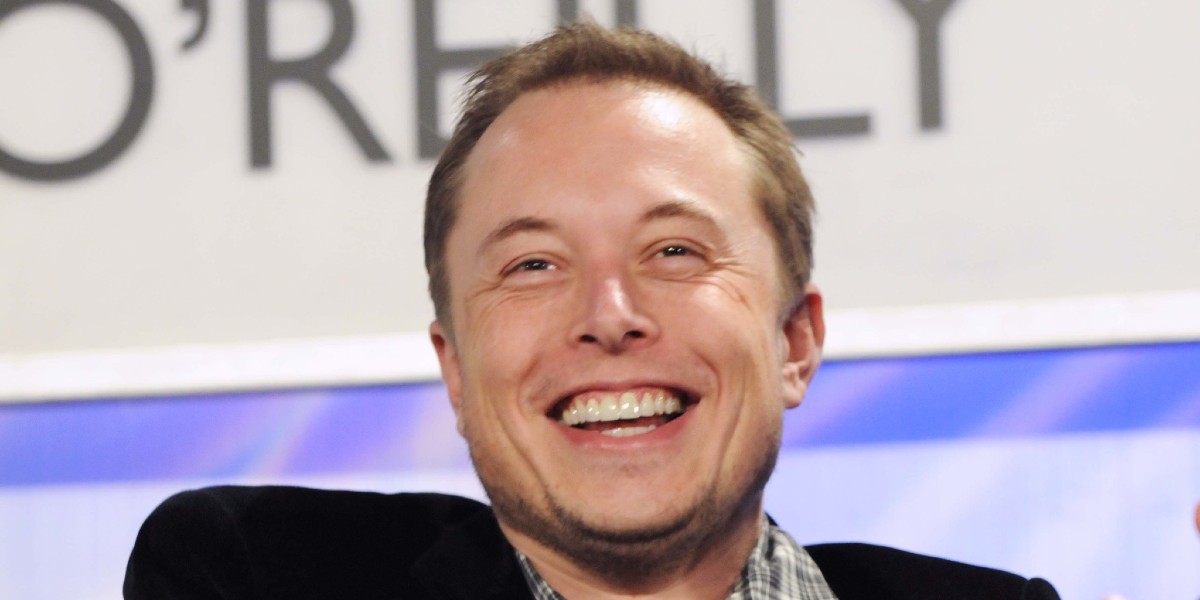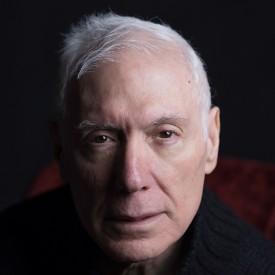Once in a while, a book comes along that’s a big deal. Today is one of those occasions—Elon Musk, by Walter Isaacson was just released. The book is a big deal because it’s written by one of our best living biographers, who himself has lived an extraordinary life—Rhodes scholar, Editor of Time magazine, CEO of CNN and Aspen Institute. And it’s about one of the most influential, and controversial, individuals in the world right now: Elon Musk.
Musk is not only the richest man on the planet, and the most extraordinary innovator of his generation, maybe of the century, but he’s also a vexing figure who has become a focal point for a lot of our collective dreams, fears, and frustrations. Does revolutionizing electric transportation and revitalizing American space travel make up for Musk’s interpersonal cruelty and damage to the public square, formerly known as Twitter? How can someone care so much about humanity, and so little about the individuals around him? And how much money—and power—should one man have?
For better or worse, Musk is unavoidable. He’s like the knot in my back that seizes up and needs to be released by a skillful masseuse. That masseuse is Walter Isaacson. Just as Musk has an uncanny ability to solve intractable engineering problems—and infuriate people with his tweets—Walter has, to use one of his favorite phrases, a “fingertip feel” for how to explore and communicate the complexity of the lives of people occupying pivotal moments in human history.
I had the pleasure of talking with Walter last Friday about the two years he spent embedded with Elon Musk reporting the book.
We are sharing today an excerpt from my conversation with Walter Isaacson on the Next Big Idea podcast, available wherever you listen to podcasts, including Apple and Spotify. The full interview is also available on the Next Big Idea app.
Highlights from our conversation follow. I hope you will join our discussion on LinkedIn.

Elon Musk is one of the most controversial figures of our time, worshiped by some people, reviled by others. What was the process like of trying to understand him? Did you come to develop empathy for him, or admiration?
One of the really odd things you’ll see in the book is that there’s not one Elon Musk. This is a guy with multiple personalities, almost like Jekyll and Hyde, and he can switch instantly from being in giddy, funny mode to being deep in engineering mode, where he focuses like a laser on something. There’s also a concentration mode where he processes things. And finally, there’s demon mode. His ex-girlfriend, Claire Boucher, known as Grimes, calls it a “demon mode” in which he can be really nasty and hard on people, or just go silent sometimes, and brood darkly.
As Grimes says, there are a lot of Elon Musks that I like, and there’s some that I actually don’t like and they don’t like me, but it’s demon mode, she says, “That often gets shit done.”
Has Musk read the book?
I don’t know. I really don’t. I mean, we’re speaking right now about three or four days before it’s being officially published, and I’m not sure.
Will he like it when he reads it?
I think there’ll be parts that’ll drive him crazy, including about the demons instilled in his head by his psychologically abusive father. But the question of whether he’ll like it or not, I try to put that out of my mind.
The timing of the two years you spent with Musk was pretty extraordinary.
Well, when we started, he had just become the richest person in the world. He had been Time magazine’s person of the year. He had turned Tesla around and they had sold about a million cars, and they were worth more than all other auto companies combined. He was the only person who was able to get astronauts from America into orbit, and then he’s the only person to be able to land the boosters and reuse them again pretty quickly. So, he was riding real high.
But as soon as I was following him around, he started buying Twitter stock. And I said, “What’s the deal?” He said, “Well, I always got to put my chips back on the table. I don’t like resting on my success. A period of calm doesn’t suit me. I was made for a storm. I love the drama.” And so, I started off with a guy who was one of the most popular people on the planet, and ended up with a guy who’s the most controversial. And I find that a pretty exciting journey.
What drives Elon Musk?
I think he’s driven by three missions ever since he was young—they come from reading Isaac Asimov and reading comic books and everything else. His first great mission is making humans a multi-planetary species. To protect human consciousness, we’ve got to explore other planets. Secondly, we’ve got to get into an era of sustainable energy. So, he wants to bring us into the era of electric vehicles. And thirdly, he’s worried about the safety of artificial intelligence, that maybe our robots will someday turn on us.
Those are the great missions. They’re epic missions. And at times, I was sort of scoffing when he would talk about them, and I’d say, “Oh, these are just the fantasies of a person who has read The Hitchhiker’s Guide to the Galaxy once too often, or somebody just bloviating.” But after a while, I came to believe that there was, deep in Musk, something that really believed in these epic missions. It comes out of childhood, too, which is almost a superhero complex, but one that is channeled quite effectively to making him the only person who’s gotten us into the era of electric vehicles efficiently. And the only company or entity, including NASA, that’s been able to get American astronauts from the U.S. up to the space station or into orbit.
So, we could scoff at him having these grand visions, but each and every day, at each and every meeting, there would be a moment when that vision would both play out and inspire the people around him.
Tell us about Musk’s demon mode.
When he goes into demon mode, he really starts tearing people apart, or he starts saying nasty things, and then he’ll just brood silently for a while, and when he snaps out of it, he hardly remembers. I’ll say, why did you say that to Andy Krebs or Lucas Hughes? And why did you do this? And he’ll look at me almost blankly, as if it was just a phase he went through. But then, when he snaps out of it, he’ll treat everybody normally again.
It was an odd thing to watch. Sometimes, it was quite effective. I mean, he would order up surges, that’s what he called them, which is when he didn’t think people were working hard enough or were all in or hardcore or intense. He would just say, “Okay. In a hundred hours, we’re going to have to do this.” Or, “I want a hundred people on this launchpad for the next three days, getting the rocket stacked.” And that would come out of some of his dark demon driven personality, but it would actually be amazing to watch its effectiveness.
One cost of Musk’s brusqueness is driving away talent. Andrej Karpathy, the great AI developer, recently left Tesla to return to OpenAI. Just last month, Tesla’s CFO, Zach Kirkhorn, left the company after 10 years. Does that worry you for the future of these companies?
Well, certainly, there has been some turnover, th0ugh in some cases just the opposite. If you look at the top of, say, SpaceX, Gwynne Shotwell has been there more than 20 years as the president. And Mark Juncosa has been the sidekick for about 20 years, in terms of technology officers. And whether it’s Drew Baglino or Lars Moravy at Tesla, a lot have been there a long time.
I think, for Musk, the people who don’t want to be pushed very hard, he’s fully understanding. They get really nice payoffs and everything else, but he wants people who are going to be pushed, and he’s got the turnover at approximately where he wants it. He doesn’t want people, as he put it, to call in rich. In other words, they’ve made a lot of money, so they’re not going to work quite as hard, but they’re going to stay at the company.
Let’s talk about Starlink, which has generated news in the last 24 hours. Has the press gotten it right? What do you make of Musk’s decision to restrict this Starlink access to the Ukrainians?
It was a complex and interesting thing, which is when Russia invades Ukraine, the U.S. satellites, companies like Viasat… Russia can knock them out. They can just hack them with denial of service attacks. But Starlink was built good enough that Russians couldn’t take it out, so Musk started sending large amounts of Starlink satellites and service to Ukraine that they can use in conducting the war. They wouldn’t have been able to coordinate their troops at all had Starlink not been rushed in that very day.
There was a certain point, a Friday night, I think it was, in which they were going to use Starlink to take drone submarines and do a Pearl Harbor-like sneak attack on Sevastopol in the Crimea, where the Russian fleet is based. And Crimea is, as you know, very disputed territory, but totally occupied by Russia. And the Ukrainians thought that they could use Starlink all the way to Sevastopol, and there was an issue that they didn’t fully get on geofencing. And on that Friday, Musk decides that that leads to World War III, maybe, if you do a sneak attack and you take out the Russian fleet in Sevastopol. He said, “I made Starlink so people could watch movies and play video games, not to start World War III. Why am I in this war?”
And so, what he does is keep the geofencing working in a way that the submarines end up washing ashore, harmlessly. And then, I have in the book something others didn’t have, which is the encrypted text messages between him and the Ukrainian ministers as they try to sort out, where are you going to allow us to use this? And where is it not going to be allowed to use? Because Musk didn’t want it to be used for the type of offensive purposes that could widen the war. And even Musk, by this point, realizes he’s got far too much power. Musk doesn’t mind having power, but I mean, this is too much.
So, he creates something called Starshield, which you’ll see in the book—and in the Washington Post, which actually got the story right. I mean, they got an excerpt of my book, and it has it right, unlike the CNN piece. And Starshield is something that’s licensed to and sold to the U.S. military and the CIA, and they get to determine how it’s used, including in Ukraine. And so, having talked to General Milley of the Joint Chiefs, and having talked to Jake Sullivan, who’s a national security advisor, must decide, all right, some of this power ought to be transferred to the U.S. government.
[Note: On September 9th, Isaacson took to Twitter to revise what he wrote in his book about Ukraine: “To clarify on the Starlink issue: the Ukrainians THOUGHT coverage was enabled all the way to Crimea, but it was not. They asked Musk to enable it for their drone sub attack on the Russian fleet. Musk did not enable it, because he thought, probably correctly, that would cause a major war.”]
In the last few paragraphs of the book, there’s this wonderful moment where Musk jokes, “I’ve shot myself in the foot so often, I ought to buy some Kevlar boots.” He also ruminated that Twitter should have an impulse control delay button, which is not a bad idea. Maybe Elon should have an impulse control delay button.
But then you ask, “Would a restrained Musk accomplish as much as a Musk unbound, is being unfiltered and untethered integral to who he is?” It seems like you think it is, that his bias for action and tendency to do things impulsively is a necessary piece of the puzzle for a man to accomplish all that he has.
Well, that’s the theme in the question in the whole book: how much of a risk-taker do you have to be? How impulsive do you have to be? Would a Musk with an impulse control button get rockets into orbit as fast as a Musk unbound? And there are times when things happen that are totally amazing, because he’s willing to take more risks. And of course, you’ve talked about, and I talk about in the book, the downside about being a risk-taker and pushing people too hard.
I try to weave it so that you understand it’s a whole cloth of a person. And it’s true of many people that they have dark strands and they have light strands, they have risk-taking strands, and they have adventuresome strands, and they have impulse control buttons, too. You can’t say, “Let me just unravel the cloth and pull out the bad things.” You have to understand a person, as a whole. I think it’s my opinion that I wouldn’t want to be like Musk, but also it’s my opinion that I ain’t going to ever get a rocket into orbit. I’m not driven in that way.
But it’s also my opinion that we used to be a nation that was a little bit more innovative. We were more adventuresome. Almost everybody in this country, got over to this country, and they took a lot of risks to get here, whether it was on the Mayflower or across the Rio Grande river. And it wasn’t just adventuresomeness, it was a willingness to take risks.
Nowadays, we have more referees in our society than we have risk-takers. We have more regulators than we have innovators. And that’s a pretty good thing. You don’t want people shooting off rockets without the FAA saying it’s approved, and putting on self-driving cars. We need lawyers to say, “You can’t do that.” And we need regulators, and we need referees. However, if you get to be the type of place that can’t build high speed rail, or can’t build affordable housing in cities, or can’t deal with certain problems, you’ll end up with an aging infrastructure and you’ll end up with what was happening in the U.S… In the early 2000s when Musk started SpaceX, this was a country that, 50 years earlier, had put men on the moon, people on the moon, and yet now couldn’t even get people into orbit.
The whole purpose of the book is to show how an impulsive, impetuous, and often immature person gets things done. It’s not to excuse or justify them being impulsive, impetuous, or rude, but it’s… how did this happen? And how can we, as a society, recalibrate a little bit? Maybe be willing to take a few more adventures to try to become space faring, maybe to take a few more risks, and answer to the question at the end.
A Musk with an impulse control button would not have infuriated people as much. He would not have been as controversial. But he would not have brought us into the era of electric vehicles, and he would not have made us a country that could get astronauts into orbit. It’s up to each reader to say, “Well, does that excuse this stupid tweet he did?” or “Does that excuse the way he yelled at somebody?” My own view is, no, it doesn’t really excuse it. He shouldn’t have done that. But it is part of the whole cloth, and I think you’ve got to understand that.
Do you think his net impact on the world is positive or negative?
I think that his impact on Twitter will be very net negative, and his impact on many other things, including artificial intelligence and self-driving cars, will be very positive. And that’s why you don’t just get to do a 140-character judgment on a person.
Do you have advice for Elon Musk?
If he asked my advice, which he never does, I’d say, Hey, focus on the rockets, focus on AI. Focus on the robots, focus on self driving, and focus on Tesla cars. And, you know, it’d probably be better if he had kept that focus. But it’s better for the book and this amazing tale to watch where he succeeds and where he fails.
These interview excerpts have been edited and condensed for clarity.
To enjoy ad-free episodes of the Next Big Idea podcast, download the Next Big Idea App today:

When you buy through our Amazon links, the Next Big Idea Club may earn an affiliate commission.































